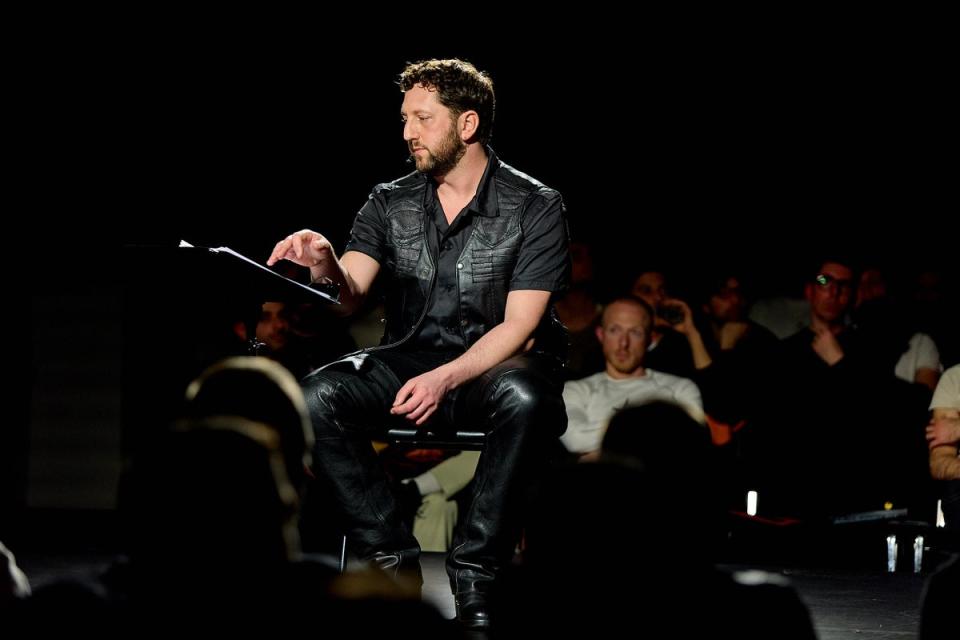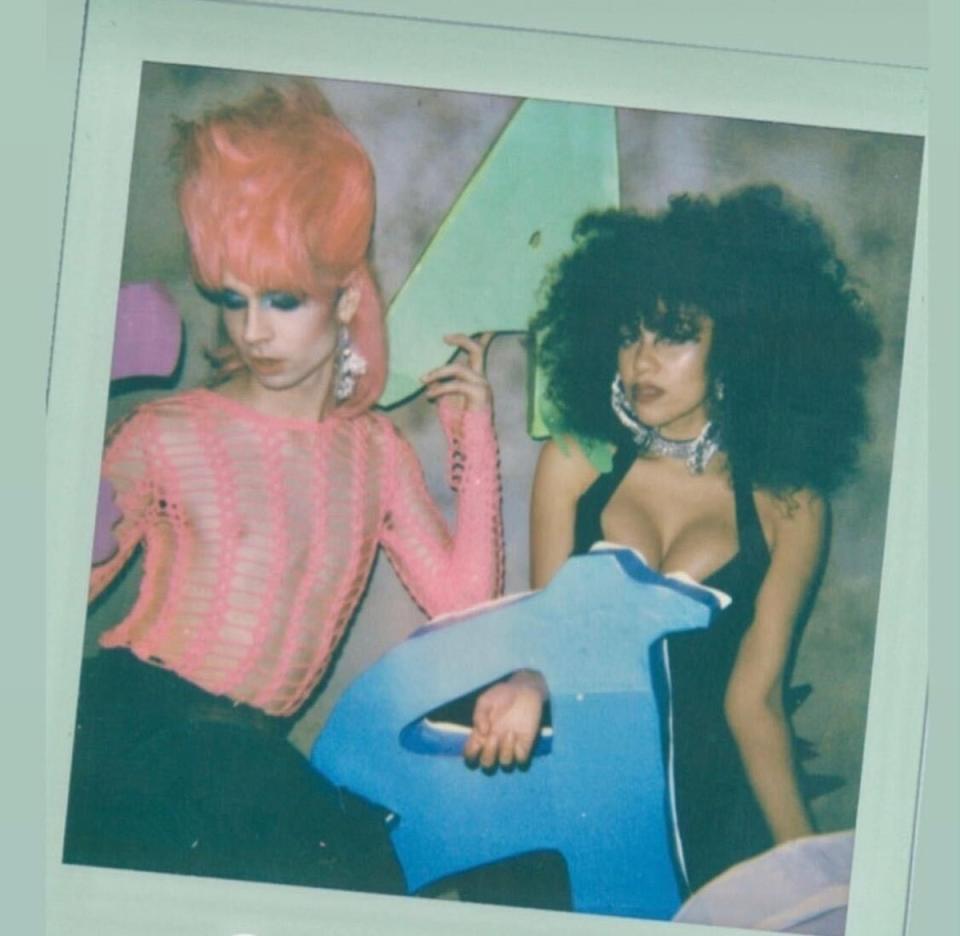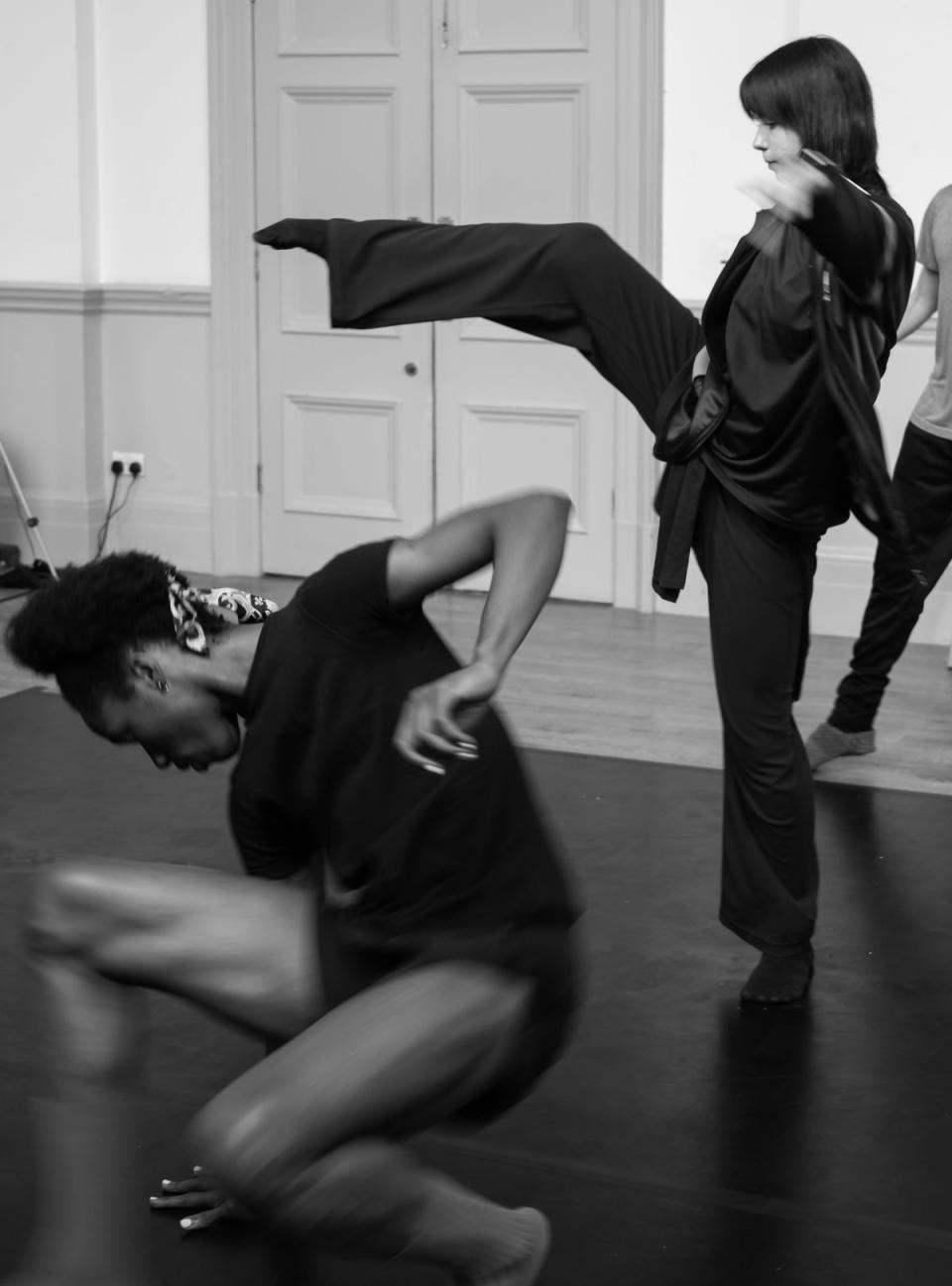Around a blue-lit, scaled-down stage at the Penarth Center (certainly one of London’s less-visited venues, found in South Bermondsey), a busy crowd of gays erupted into feverish, tearful applause last month. A performance of Jerker, the 1986 play about phone sex during the AIDS pandemic by the late San Francisco playwright and activist Robert Chesley, had just ended — and the giddy crowd was about to move to a nearby mansion for an afterparty.
It was the place to be that Saturday night, and only the latest in a series of evenings organized by The Aids Play Project, an organization founded by playwright and director Alastair Curtis “to breathe new life into parts of our archive or history,” he explains . Since last June, Curtis has immersed himself in research, unearthing old plays and manuscripts written by people who lost their lives to HIV/AIDS, “many of which, forty years later, have been marginalized or relatively forgotten.”
When he finds one – other recent productions include Harry Kondoleon’s Christmas on Mars and Charles Ludlam’s Camille – Curtis begins organizing a community rendition performed by drag stars including Sue Gives a F*** and Sharon Le Grand (‘two of this generation’s greatest artists’), Olivier Award-nominated actors such as Paul Hilton and Sharon Small, as well as blockbuster, up-and-coming names to know, Adam Silver, Dominic Holmes and Mary Malone. The flourish of the camp comes at no extra cost, via costumes created by London studio Allen and Adcock.

This momentum-building project is one of a number of grassroots LGBTQIA+ performing arts events currently bubbling around the city. Why? Curtis thinks people are turning their backs on the establishment. “We are largely unsupported by the bastions of creativity and theatrical innovation in London,” he says, adding “the heterosexual mainstream of the National Theater or the Royal Court.” In the absence of that ecosystem, we have to develop our own ecosystem.’
That’s not to say there haven’t been queer-focused performances at top venues. Recent highlights include the epic performance of A Little Life, a stage adaptation of Hanya Yanagihara’s novel about gay life in the United States, starring James Norton at the Harold Pinter Theater in 2023; A Strange Loop, the ‘fat, Black, queer body’ musical, arrived on the Barbican stage from Broadway last summer, while Cowbois, a ‘rollicking queer Western’, was a big hit at the Royal Court earlier this year.
But Jeanie Crystal, the musician, choreographer and pillar of London’s queer creative community, agrees with Curtis. “The state really has its dirty hands on queer and trans rights at the moment, so now is the time for us to stand strong and speak out,” she says. ‘It is so important that we are visible and take up space.’


For this reason, she once again joins forces with DJ Josh Quinton. In 2020, the pair founded Faboo (first a club night in Stoke Newington with extravagant parties with bursts of performances, before turning to a TV show during the pandemic and morphing into the pop-up shop Fabootique!, supporting new designers of 2021 until 2020. 2022). For their next act? Synthetique – a ‘real’ punk music and performance evening. “Think Michael Clark vibes: contemporary dancers, ballet, drag queens and classic punk bands,” she says. The first night will come later this summer. ‘Rock’n’roll needs a boost – it’s so heavily straight.’
A vibrant, creative queer scene is far from new territory for London. In fact, it has been an epicenter for a long time, Crystal explains. “There’s an amazing history of queer icons, the ones we know and the ones that came before,” she says. ‘Just think of Soho. From Quentin Crisp to Francis Bacon. There is heaven as an institution. The glory. Vogue fabrics Dalston. There are countless queer spaces that are protected in London in ways you won’t find anywhere else in the world. Every year, more and more queer people from all parts of the country are getting on that train and are encouraged to thrive and prosper.”


Punk isn’t the only thing on the menu for London’s queering. Ballet Queer, Britain’s first LGBTQIA+ ballet company, founded in September last year by Jonathan Watkins, is doing the same for dance. ‘Ballet, in my opinion, is queer and has always been queer. There have always been strange people around ballet,” he says. “I want to reclaim that story.”
Watkins, who worked at the Royal Ballet for 10 years and was then a freelance choreographer for 10 years, is leading an artistic residency at Shoreditch Town Hall, as well as a six-month community dance project for up to 50 Hackney residents. to soften.
“Our first professional piece will be a nod to people in ballet and dance history who have been revolutionary in terms of their queerness. Vaslav Nijinsky [the great Russian dancer] and Sergei Diaghilev [founder of Ballet Russes] were strange. Isadora Duncan is a queer dancer from the 19th century,” he says. ‘I want to launch the company with a performance that nods to the past but has its roots in contemporary history.’
For many, mounting such productions is fueled by a desire to continue writing about this city’s diverse artistic output. “There’s a standard narrative about what the history of queer theater was like—Tony Kushner’s Angels in America, Larry Kramer’s The Normal Heart—but there’s no attempt to broaden that field,” Curtis says. ‘That’s partly because they don’t think it’s commercial enough.’
In reality, it seems that the appetite is greater than ever. “Every time we’ve done a show, the Aids Play Project has sold out within minutes,” says Curtis. ‘So not commercial? That actually doesn’t match our experience at all.’